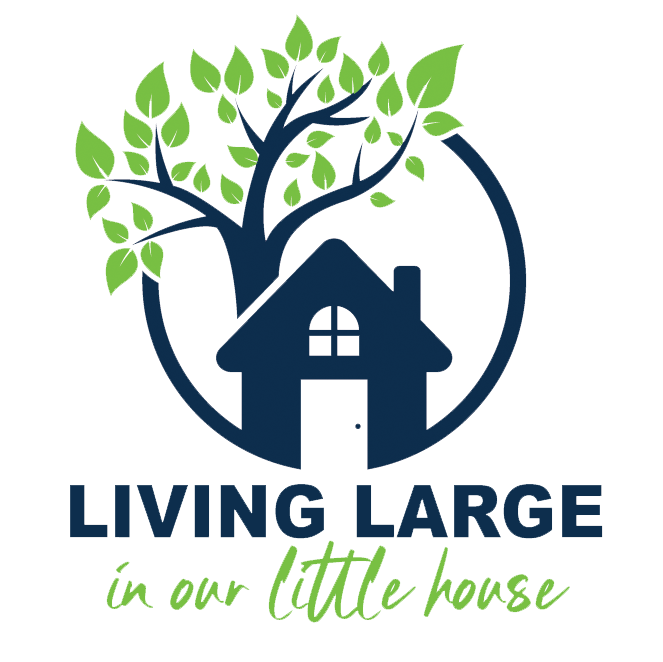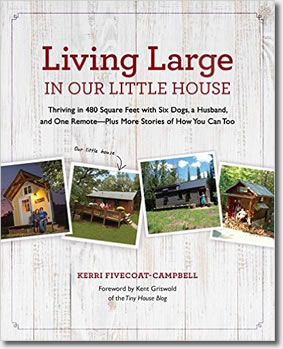The Cost of Living Large
We made a trip back to Kansas City last weekend to attend a wedding and see my mother in law for Mother’s Day.
Our visit made me realize that it just isn’t the lack of jobs that is causing America’s rural towns to die slow and many times for it’s citizens, painful deaths.
When we moved here, people would say to us, “The cost of living must be so much less.”
We knew it wasn’t on an anecdotal scale, we knew gasoline was higher even when prices were lower, as it takes twice as long to drive anywhere.
But we didn’t realize how far capitalist competition helps to drive prices down in a larger city.
Take for example, sushi. I love it. In the city, I ate at my local sushi bar at least 2-3 times a week. It was 5 minutes from my house and the interaction with the chefs, wait staff and other customers helped relieve the isolation I sometimes feel working from home, as well as the stress of caring for my dying mother.
After living here for so long, I thought maybe I could just afford to eat there that many times a week because our wages were higher then.
Turns out the bill was also about half of what I pay here. I can’t get out of our local sushi bar here in Arkansas and get full for less than $40 (I eat there maybe once a month due to location and price). In the city, my bill, after I met Living Large community member Kathleen Winn, and ate quite a bit, was $23.10.
I was so shocked, I insisted I must have gotten the wrong bill!
That evening, while discussing our pets and their health, my sister in law reminded me of how outrageously expensive veterinarians are here.
Her cat recently underwent extensive blood work and surgery to remove a cancerous tumor, which required a night’s stay at the vet hospital and received medication. Her bill was $237.
Comparatively, our Beagle/Doxie mix underwent extensive blood work to determine the cause of reoccurring eye infections, received a bottle of thyroid pills, some eye drops and had a follow up visit for 5 minutes with the vet for $325.
The next day we went to the grocery store to purchase several local items we cannot find here such as sugar free pancake syrup and fresh Mexican corn and flour tortillas. About 20 percent cheaper per item than Arkansas.
Meanwhile, wages are about 40 percent lower in this region than in the city and while we feel very fortunate to have health insurance at all through Dale’s job as most jobs here do not offer it, the healthcare coverage is more expensive and no where near the coverage we had through his job in the city.
When people lament the dying of America’s rural areas, they usually blame the lack of opportunity and jobs.
Now, we’re sure that it’s also the higher cost of living due to lack of competition in the marketplace.
It’s a good thing we’ve eliminated the need for buying “stuff,” as the discretionary income we had in the city has been whittled away for the cost of living here.
We’re still Living Large, just dispensing our money differently.
Have you had such experiences in rural areas? Are you thinking of moving to a rural area and are you taking the overall cost of living into consideration?









PS – our vets are reasonable because it’s a farm community and there are a LOT of vets here!
I find it money saving to live rurally, because there’s just no where to spend money 🙂 Easy to save that way.
Gas is 30 cents more here than “over the hill in the big town 70 miles away), but as my whole world is within 15 miles of home, I don’t use much gas at all. It’s 2 miles to town center, grocery, bank, post office, hospital, doctor, etc. No need to travel far.
By doing for myself, and having the space to garden freely, with rivers and bay to fish, clam, crab from, with asking for neck and back bones in exchange for helping friends cut/wrap game meat or cattle, I have most everything thing I need without spending much at all. And I sew – mostly with great fabrics found at garage sales or bag sales… If your needs are small, it is much easier and cheaper, I think, to get by in my small town, pop. 4000, than in the bigger cities. I do plan a once or twice a year trip to the big city to “stock up”, but that is when I have to go that way anyway, and not a special trip.
Older homes here, modest sizes go for little. My previous home of 564 sq ft I bought for $40,000 on a city lot -enlarged it to 1000 sq ft for $40,000 more, and It’s now a rental. This year I bought an 864 sq ft home for $99,000 on 2/3 acre in the farm fields with gorgeous views. Just planted my fruit orchard with semi-dwarfs and have a huge garden spot 🙂
Think it depends on which rural area you are in. And how simple your needs are, and how much you can do yourself 🙂
That’s probably true, Marci. I mean, I really don’t *need* to eat sushi, especially 2-3 times a week as I did when I lived in the city.
It’s also a matter of where we live and what we need. We’re about 20 miles from town and Dale has to drive it at least daily. That’s been nearly $70 in gas per week here recently. If it were just me in my self employed situation, it would be one trip to town a week and probably one bigger trip once a month to the larger city. I have no idea why vets are so much more expensive here, but I’ve did price comparisons and ours is not out of line with the rest. It really is no wonder people do not take care of their pets here.
We have acreage in a very rural community. (Still live in the metro area approx. an hour from it). I’ve found the same that gas prices, grocer are all more expensive. I’m certain that it is due to it being so much more isolated.. In many other ways, the businesses can command more due to the lack of competition. Example: There’s 1 gas station on a 15 mile stretch of road. Now, if you REALLY need gas, you’re going to stop there and pay the premium price. Whereas in our metro area, there’s obviously gas stations across the street from one another and spaced out every mile or so. On the plus side, many of our relatives live somewhat sustainably and also barter for goods and services with neighbors (imagine that? the concept still exists!) 🙂 Example: rather than drive all the way into town for new fencing, they’ll communicate with neighbors and may find someone who is upgrading or changing their fencing around and swap out for borrowing a piece of heavy equipment or getting help on another project. It’s very ‘Little House on the Prairiesque’ in that regard. That saves them a lot of money. (Same with their swapping eggs from a neighbor with their small garden crop of veggies).
Welcome, future homesteader to Living Large! That is a good point. Bartering still does exist in the country, as well as sometimes doing business on a handshake. We also have gotten gasoline (and given it) when we’ve found ourselves short for the log splitter or mower, as well as having traded other things such as eggs and produce. Good point and thanks for commenting!
I would think that specialty items (sushi among them) would be more expensive in rural areas. I’m surprised, though, that vet services would be too. Then again, I take my pet to one of the pet superstores for his services so maybe being connected in with a larger organization helps defray the cost.
That could be. We don’t have a pet supply superstore here. 🙂
It makes sense that good would be higher in a rural setting where there is less competition. Would ordering some items over the internet (obviously not food) help defray costs?
Donna, we don’t buy much that isn’t necessary, simply because we don’t need anything in such a small house. When I do need stuff, I do try to shop online though.
It may depend on the city you’re comparing… moving back to Arkansas from Orlando cut our “goods and services” costs tremendously… everything from groceries to utilities to gasoline is much less expensive here in the Ozarks. Our house would easily cost twice what we paid for it if it were located in Orlando– even more if you consider that we have 1.8 acres that it sits upon. (Of course, real estate prices in Florida have plummeted, so that statement may be less true than it was a few years back– another reason that we’re thankful we’re here now rather than back there.)
My former neighbor moved to Kansas City from Orlando and her costs are much lower there as well, and housing costs are pretty comparable to our small-town Arkansas ones. Perhaps Kansas City is one of the more affordable urban areas in the US?
Our sushi costs are low, because THERE IS NONE worth eating in town. Total lack of supply helps to cut your budget expenses! 🙂 We do go a little nuts when we travel to a bigger place as a result.
Very good point, Kim. Comparing Orlando to prices here in Arkansas, I suppose, would make it much less expensive on the cost of living! Yes, KC is a pretty affordable city.
Hey, come over to MH one of these days and we’ll tear us up some sushi! 😉
The next time my “things would be better” dream of moving to Maine comes up, I’m just going to keep saying two words to myself: cheap sushi. That should be enough to keep me in NJ for the time being.
You’re too funny, Casey. Realistic and funny. 🙂
I have found this to be true to some extent, though not always, when I am visiting my parents who live in a small town in Pennsylvania. I don’t know how rural their area is though, as it’s gotten quite developed over the years, and is right off a major highway. So perhaps that’s not representative of the phenomenon you describe.
I think geography does play a role in it a swell, Christine.
It always frustrates me when I think about how much better we could be living if we lived away from the Northeast…at least, in terms of housing prices. But now I realize that doesn’t necessarily translate to lower prices of goods and services.
Oh, land and homes are much cheaper here than the Northeast, Sheryl. But I don’t know about goods and services.
Here in rural NZ, we have some of both. Petrol is more expensive than in Auckland, but some basic food items are cheaper. Of course, many fancier food items we can’t get at all. It’s swings and roundabouts!
And I would think most everything to be more expensive than in the U.S.
Despite our relatively rural location, we have access to suburban stores outside of Denver, so we don’t see these price hikes. We did once consider moving to rural areas in other states, where you could get a HUGE house on a HUGE piece of land for about 1/2 of what we have here. We said the same thing about jobs and such, but never considered the no-competition / hard-to-get element that would drive up other prices. Eeek!
I hope this post helps people consider these points, Roxanne. It is a major shock to the budget when moving to a rural area.
What’s hard, is that due to the high prices small businesses must charge in out-of-the-way regions, it’s that much easier for a big WalMart or other box store to come in; people are hungry for lower prices so they welcome it. Then that kills the small businesses altogether. I’ve seen this cycle happen all over the midwest with completely vacant downtowns. Not sure what the solution is, but that’s not it either!
I agree, Melanie. Although that too, has happened here. It’s a vicious circle. The independents must charge higher prices to cover their costs while the low wages drive people to Wal-Mart. We still do have some independents and I try to support them where I can.
We live near California. But everything is cheaper in our state. Even California produce. I have yet to understand why!
I didn’t know anything was cheaper out west, Jennifer. That is interesting.
What a fascinating post. As a city-dweller, I’d just assumed cities were more expensive.
Most people assume that, Ruth. I wish it were true. I think people get that idea because wages are so much lower typically in rural areas. You would think that the cost of living would be consistent with wages.
it is not just in the US that this difference exists. I’ve experienced it Ireland, Northern Ireland, and Scotland. All much smaller countries tha the US of course, but in some ways I think that makes rural distribution even more costly.
Well, when you think about it in terms of the higher gas prices in those countries, that also makes more sense, Kerry.
Though one who lives rurally might have fewer expenses in one sense, the cost of bringing all the goods to rural locales costs more. Seems upside down, in a way, yet makes sense, when you think about transporting gasoline for cars/trucks to run, especially right now with the spike in fuel costs. It reminds me of what folks in Hawaii deal with, too. I could not believe it when, many MANY years ago, I saw the cost of a gallon of milk to be more than $6 while vacationing on Maui.
Yikes! $6 a gallon! Yep, I get the increased cost of delivery, but still don’t understand the wage issue being so much less.
It always amazes me how vastly different prices are from region to region. Even in our little area, if you drive 10 miles to town, the gas is .10 cents cheaper!
And whenever I whine about prices here in Michigan, I always think about my friends in the New York and New Jersey areas, where prices are ten times worse. The whole economics thing is just fascinating (if not a little depressing at times).
I know, Jane. We go to the larger town near us and it is sometimes cheaper and sometimes more. How can that be in a span of 20 miles!?
Interesting insight, Kerri. It does make sense, but it doesn’t seem fair.
Well, you know what our mothers always said about life being fair. 🙂 Thanks, Heather.
The headline surprised me, but then I thought about how air fares are more competitive from big airports than small ones. Still, I hadn’t thought this would impact restaurant prices.
Oh, I forgot about the airfare, Susan. But I did get a good fare to NYC this past week.
What a sad irony it is Kerri, that your move to achieve a life lived more simply, ends up costing more. My parents moved to the country shortly after I graduated high school, and I remember their rude awakening on learning how expensive it was to live a rural lifestyle. Though they supplemented their groceries with eggs from their own chickens and vegetables from a garden, virtually everything else they needed cost more, and as you point out, the expense of gasoline also has to be factored into every excursion or trip to town.
As you know, we moved to a rural area last summer, but because we are only about fifty miles outside the city, don’t have the same high prices as those in more isolated areas. In fact, veterinary care here is actually much cheaper than when we lived in Kansas City. This part of Missouri is cattle and horse country, so veterinarians have plenty of business. There are three veterinary practices in our small town alone, all competing, so fees are actually very reasonable.
Despite what I know must be a frustrating rise in your general cost of living, I admire your willingness to let go of a life filled with “stuff,” in favor of a less materialistic, but more rewarding existence. Continued luck to you and Dale in your efforts to live large, on less!
It depends on which part of the city, too, Kathleen. I showed you how much less expensive things are in a more depressed county in KC! 🙂 thanks for your well wishes. It is a sad irony, especially given the wages here.
Yes. This winter we ordered a small pizza in Boston and paid $8. The same size pizza in our rural Cape town, in winter, costs $14.
Oh, wow, Alexandra. I bet that has you eating out very few times during the winter!
That’s very profound. It must be a whole different kind of business model out in “The Sticks” as opposed to the city, too. Take the food distributor for a restaurant–he’s got a highly dense core in a city, but he’s got to go further to fewer establishments in a rural area.
Exactly, Mat. When you think about it, the higher prices makes sense, it just doesn’t make it any better for those of us who live here.